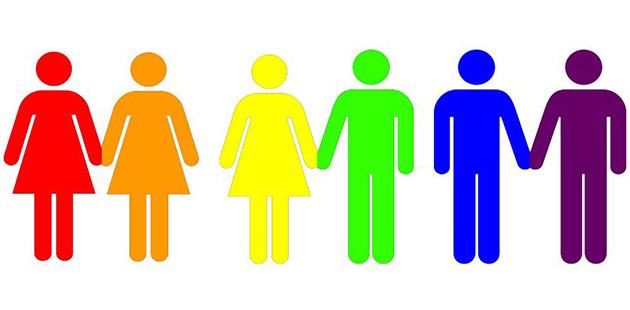 Disputes about terminology have become quite heated as the political debate over whether Australia should legalise same-sex marriage continues. So, is there a difference between ‘gay marriage’ and ‘marriage equality’? And for whom does it matter?
Disputes about terminology have become quite heated as the political debate over whether Australia should legalise same-sex marriage continues. So, is there a difference between ‘gay marriage’ and ‘marriage equality’? And for whom does it matter?
A recent comic summed up the issue perfectly. Pop culture icon and feminist superhero Wonder Woman officiates at a wedding of two women. Afterwards, Superman exclaims: I didn’t know you were a proponent of gay marriage. Wonder Woman replies: To us, it’s not ‘gay marriage’. It’s just marriage.
What’s in a name?
At the heart of the debate about labels is a conflict about whether a marriage between same-sex partners is the same as or different to a marriage between opposite-sex partners.
Proponents of legalising same-sex marriage argue that the sex of the partners in a marriage is irrelevant to the nature of the union. Labor senator Penny Wong argued this in her recent debate with Liberal senator Cory Bernardi. Rather than changing the institution of marriage, same-sex marriage is about removing unjust sexual discrimination from current marriage law.
Opponents of change to current marriage law, on the other hand, argue that the union of sexual difference is the essence of marriage. The union of same-sex partners might be a socially acceptable form of intimate relationship but, as the Australian Marriage Forum claimed in their recent advertisement: It’s. Not. Marriage.
By using the language of ‘marriage equality’ rather than ‘gay marriage’, proponents of change assert that marriage between same-sex partners is essentially the same as between opposite-sex partners.
By using the terms ‘gay marriage’ or ‘same-sex marriage’ (usually in scare quotes), opponents of change assert that the legal and ritual union of same-sex partners is essentially different to, and less legitimate than, the marital union of opposite-sex partners.
So, while this difference in labelling may seem trivial, it embodies the central conflict in the current marriage debate.
Is sexual difference important?
Same-sex and opposite-sex marriages differ to the extent that the sex of the partners in the marriage is different. But what is at stake in this debate is how significant sexual difference is in marriage and in our society generally.
Marriage is a significant institution for the production and maintenance of gender norms. As I argued in my recent book on the history of love and romance: In the ritual of a wedding and the ongoing performance of marriage roles and practices, the gender ideology of a society is constructed, performed and reproduced.
Marriage is thus at once a relationship between two people and a means of social organisation – a symbol of “normal” gender roles and identities. Changes to the structure of sexual difference in marriage are, therefore, significant for a society’s gender ideals. Or, to put it another way, marriage equality is directly linked to gender equality.
Feminism and marriage equality
Contemporary debates about same-sex marriage are only the latest episode in a long history of changes to the structure of sex and gender in marriage. For example, few people would remember the furore 100 years ago when it was proposed to remove a woman’s vow to obey her husband from the Anglican marriage service.
The proposal of equal marriage vows was greeted with horror by conservatives, who described it as “a cruel and wicked act”. The debate was resolved in 1925, after more than a decade of conflict, when the Church of England introduced a new marriage service in which husbands and wives took equal vows. This introduction of one kind of “marriage equality” quickly became normalised.
Over the past 100 years, this and other changes to marriage law have been successful in changing the gender norms symbolised by marriage from subordination to equality.
These widely accepted shifts to formal gender equality in marriage provide moral and cultural force to the current “marriage equality” campaign. It is difficult to persuade people of the importance of sexual difference in marriage when popular ideals of intimate relationships are characterised by equality rather than subordination.
It is perhaps because of the success of the idea of marriage equality that opponents of the marriage of same-sex partners have shifted to a focus on same-sex parenting. While sexual equality in romance might now easily be seen as “natural”, sexual inequality in parenting is more deeply seated.
And yet, this is one of the best arguments for marriage equality. As numerous social research studies show, despite women’s success in gaining formal equality in most areas of society, inequality in the intimate citizenship of home and family persists.
Reducing the importance of sexual difference in marriage by including same-sex couples might make this intimate inequality less thinkable. In short, there is a feminist argument for same-sex marriage. No wonder, then, that feminist pop icon Wonder Woman endorses same-sex marriage.
Gay marriage, marriage equality … what’s the difference?
Timothy W. Jones is ARC DECRA Research Fellow at La Trobe University
This article was originally published on The Conversation.
